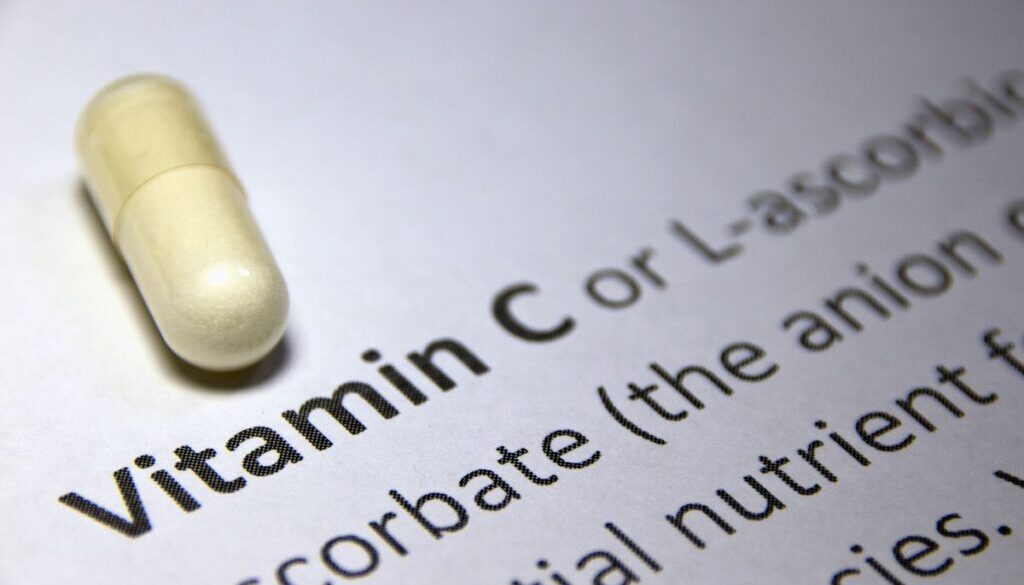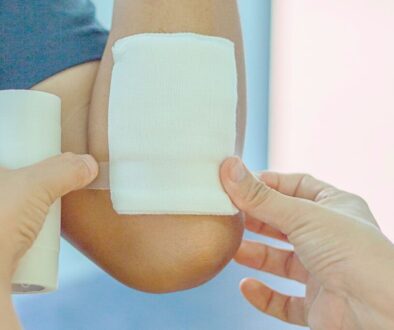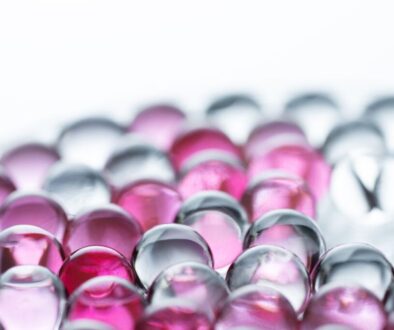Vitamin C For Wound Healing: Myths Vs. Facts Explained
Did you know your body’s ability to heal wounds could depend on a single nutrient? If you’re not getting enough vitamin C, you might be slowing down your recovery without even realizing it. Vitamin C for wound healing is a game-changer. It supports collagen production, boosts your immune system, and fights oxidative stress. Despite its benefits, myths and misinformation about vitamin C often obscure its true power.
In this article, we’ll learn the common myths about vitamin C, discovering its role in supporting healing and recovery. We’ll also look into practical tips for ensuring adequate intake.
The Vital Role Of Vitamin C In Wound Healing
Vitamin C, also called ascorbic acid, is crucial for promoting effective wound healing. Since the human body cannot produce this essential nutrient on its own, it must be obtained through diet or supplements. Here’s why vitamin C is indispensable in the healing process.
Why Your Body Needs Vitamin C To Heal
Wound healing is a complex, energy-intensive process that requires your body to regenerate tissue and activate its immune defenses. Vitamin C plays an essential role in these functions, supporting proper wound closure and promoting stronger, healthier tissue as it heals.
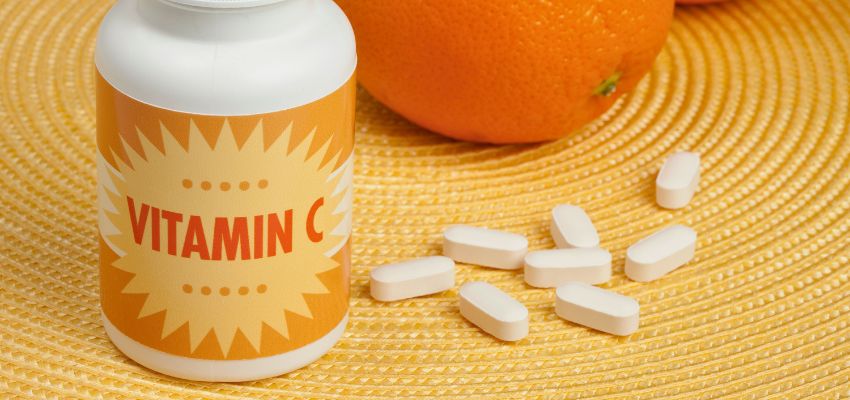
Vitamin C’s Role In Collagen Synthesis And Tissue Repair
Collagen is the main structural protein present in connective tissues. It’s vital for tissue repair. Vitamin C supports this process by activating fibroblasts. These specialized cells produce and deposit new collagen at wound sites. This new collagen forms a supportive scaffolding. It strengthens the wound, promotes tissue reconstruction, and improves tensile strength.
Scientific Evidence Connecting Vitamin C To Faster Recovery
Research shows that adequate vitamin C levels reduce inflammation. They also protect cells from oxidative damage. It can speed up recovery, too.
Vitamin C is a powerful antioxidant. It eliminates free radicals, which are unstable molecules that hinder tissue repair. This helps create the ideal environment for healing.
Common Myths About Vitamin C And Wound Healing
Although vitamin C offers well-documented benefits, numerous myths about it continue to circulate. Let’s explore the most common misconceptions and uncover the truth behind them:
Myth 1 — High Doses Instantly Heal Wounds
Is vitamin C good for wound healing? It’s a common misconception that megadosing on vitamin C leads to rapid wound healing. While it’s essential in the healing process, consuming it in excessive amounts won’t produce instant results.
Your body can only absorb and use a limited amount of the nutrient, with the surplus often being excreted. In some cases, overconsumption can even cause side effects like stomach discomfort.
Myth 2 — Topical Vitamin C Is More Effective Than Oral Supplements
While topical vitamin C can enhance skin quality and reduce discoloration, it falls short when it comes to wound healing. Oral consumption, whether through food or supplements, proves far more effective.
Vitamin C supports important processes in the body. It helps produce collagen and regulates the immune system. Both are essential for healing.
Myth 3 — Vitamin C Is Only For Those With Severe Deficiencies
Many believe that only people with severe vitamin C deficiencies need supplementation for wound healing. In extreme cases like scurvy, recovery is greatly affected. However, even moderate vitamin C levels can improve with proper intake. Even minor deficiencies may slow wound healing or weaken immune responses, making adequate vitamin C essential for everyone.
Myth 4 — Vitamin C Alone Can Ensure Recovery
While vitamin C is essential for healing, it’s far from a one-size-fits-all solution. Wound repair is a complex process that relies on a balanced diet rich in other key nutrients, such as protein, zinc, and iron. These elements work together, each playing a crucial role in ensuring optimal recovery and overall healing.
The Science-Backed Healing Powers Of Vitamin C
Vitamin C offers more than just support for tissue repair—it plays a vital role in health and recovery. Here are some proven, research-backed insights into its wide-ranging benefits.
Boosts Immune Function And Controls Inflammation
Vitamin C is critical for maintaining a strong immune system. It boosts cells like neutrophils and macrophages to protect wounds by removing bacteria and debris. It also controls inflammation, helping the healing process move forward.
Boosts Iron Absorption For Improved Oxygen Delivery
This nutrient helps your body absorb non-heme iron, found in plant-based foods. Better iron absorption improves oxygen transport to your tissues. This is essential for energy, cell regeneration, and collagen production.
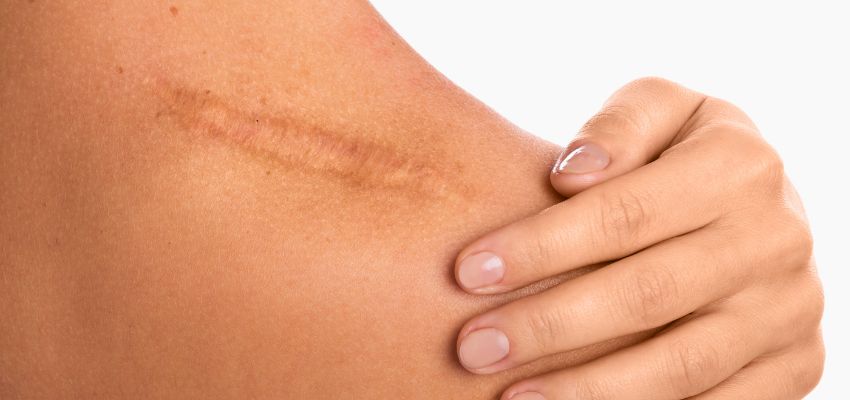
Helps Prevent Chronic Wound Complications
Oxidative stress from reactive oxygen species (ROS) can worsen inflammation. It can also damage new tissue and slow down healing. Vitamin C is a potent antioxidant that can aid in fighting harmful molecules. It contributes to a reduced risk of infections and promotes faster wound healing.
For those with chronic wounds, advanced treatments like amniotic tissue allografts from DonorCure may offer regenerative support beyond standard care.
Best Sources Of Vitamin C For Healing
Boost your vitamin C intake with these powerhouse options:
- Fruits: Oranges, strawberries, kiwis, and papayas are rich in Vitamin C and perfect for a daily dose of nutrients.
- Vegetables: Load up on bell peppers, broccoli, kale, and Brussels sprouts for a variety of Vitamin C-packed veggies.
- Supplements: If your dietary needs require extra support, supplements can help bridge the gap. Always see a healthcare professional to determine the proper dosage for you.
Adding these foods and supplements to your routine helps meet your needs. This supports healing and boosts overall health.
Frequently Asked Questions
How much vitamin C for wound healing is needed?
For adults, the recommended daily dosage is 90 mg for males and 75 mg for females. However, during periods of injury or physical stress, your body may require higher doses to aid the healing process. To determine the ideal dosage for your recovery, consult with your healthcare provider.
Does vitamin C help with recovery after surgery or injury?
A study indicates that vitamin C can aid recovery after surgery or injury by supporting tissue repair and lowering the risk of complications. For best results, it should be paired with a well-balanced diet to maximize its effectiveness.
Is topical or oral vitamin C better for wound healing?
When it comes to healing wounds, the oral form proves far more effective. While topical vitamin C works well for skincare, it’s less suited for promoting deep tissue repair and systemic healing.
Can too much vitamin C cause side effects?
Consuming more than the recommended limit of 2,000 mg per day can trigger side effects such as nausea, diarrhea, or, in rare cases, kidney stones. To reap the benefits of Vitamin C safely, it’s best to stick to the advised dosage.

Optimizing Wound Recovery: The Power Of Vitamin C And Beyond
Vitamin C for wound healing plays an important role in the recovery process, but it isn’t a cure-all. Include it as part of a recovery plan with a balanced diet, hydration, and proper care. Focus on organic sources such as fruits and vegetables, and use supplements only if needed. If recovering from surgery, managing wounds, or facing dietary limits, consult a healthcare professional for a tailored nutrition plan.
Vitamin C is essential for wound healing, but chronic or complex wounds often require more advanced solutions. That’s where amniotic tissue allografts by DonorCure make a difference. Learn how this cutting-edge therapy can support and accelerate your recovery.
Heal Ulcers, Burns, & Surgery Wounds With Break-Through Amniotic Allograft Treatments
Experience the future of wound care with our advanced amniotic allograft treatments. Say goodbye to slow healing. Our innovative solutions promote faster recovery from pressure wounds, ulcers, burns, and surgical wounds. Trust the power of science for your healing journey. Regain your comfort and health today! See if you are eligible for treatment here.

About The Author
Corinne Grace is a full-time writer living in the Philippines. She has a nursing degree from Riverside College. Her background in nursing informs her perspective, allowing her to weave in themes of health, empathy, and resilience into her work.
